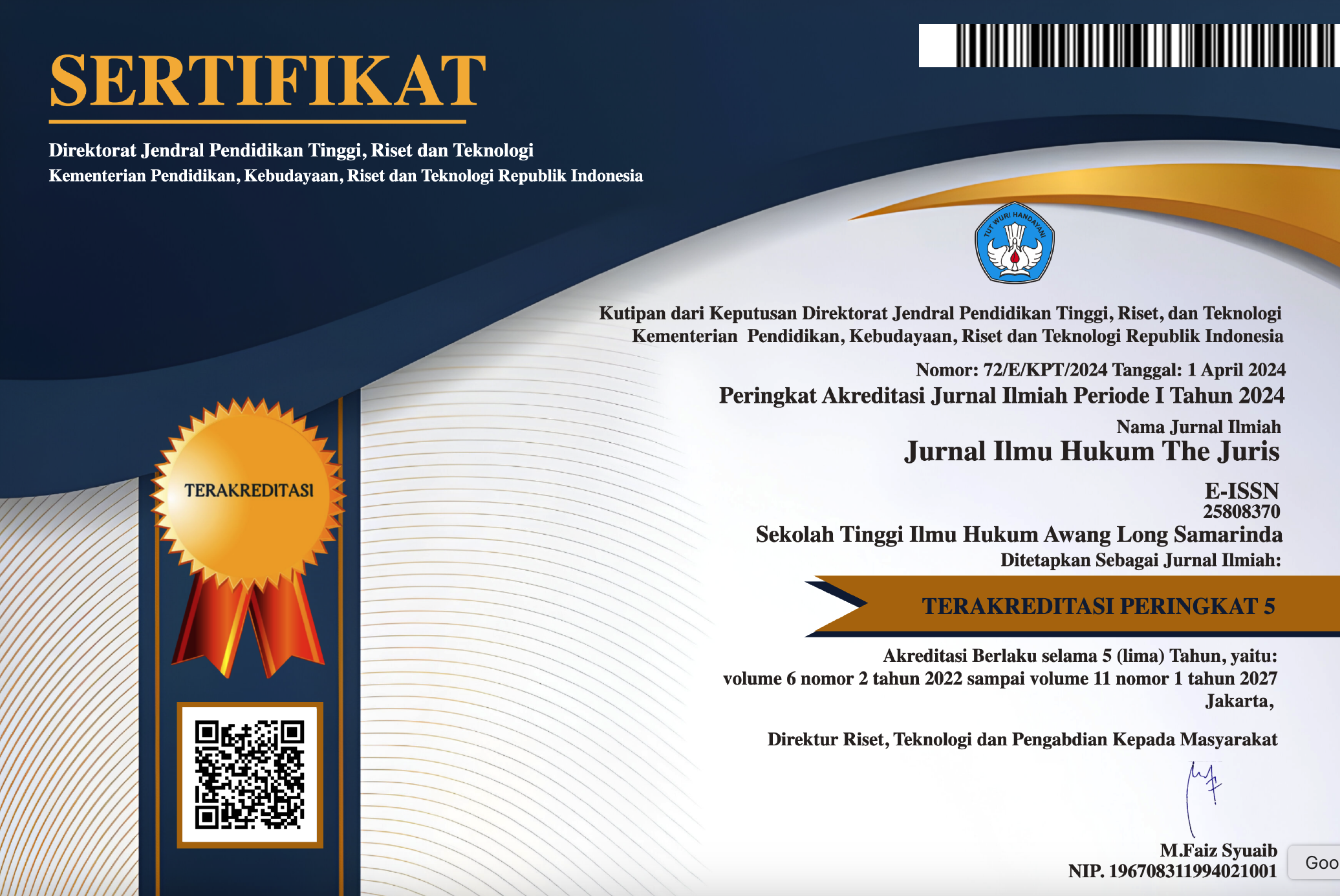ANALISIS DAN KAJIAN KRIMINOLOGI HUKUM DALAM KASUS MINUMAN BERAKHOL PADA ANAK DIBAWAH UMUR DI DESA MULYASARI
Abstract
Alcohol has a certain effect that encourages children to become criminals. Alcoholic beverages greatly affect brain function, but if they are absorbed into the blood or gradually inhibit the activity of the nervous system, alcoholic beverages greatly affect human thinking ability, which can cause children to be guilty. The effect of alcohol on crime is that alcohol abuse has a negative impact on minors. Alcoholic drinks are widely circulated and consumed by minors because there are many illegal liquor sellers who do not have official permission to sell alcoholic beverages because they are consuming alcoholic beverages. Article 300 paragraph 1 reads: (1) a maximum imprisonment of one year or a maximum fine of four thousand five hundred rupiahs; first. Any person who deliberately sells or gives intoxicating drinks to a person who appears to be drunk; Trafficking in women and trafficking of minors is punishable by imprisonment of up to six years. (2). Anyone who knowingly intoxicates a child under the age of sixteen; 3. Any person who by coercion or threat of violence forces someone to drink an intoxicating drink. Meanwhile, according to Erikson (in Alwisol, 2009), adolescence or youth is one of the stages of human development, especially at the age of 12-20 years. Any person who deliberately sells or allows an intoxicated person to drink, deliberately intoxicates a person under the age of 16 and forces him to drink, shall be punished by a maximum imprisonment of six years.
Downloads
Copyright (c) 2022 Mela Nurhayati, Hana Faridah

This work is licensed under a Creative Commons Attribution-ShareAlike 4.0 International License.







